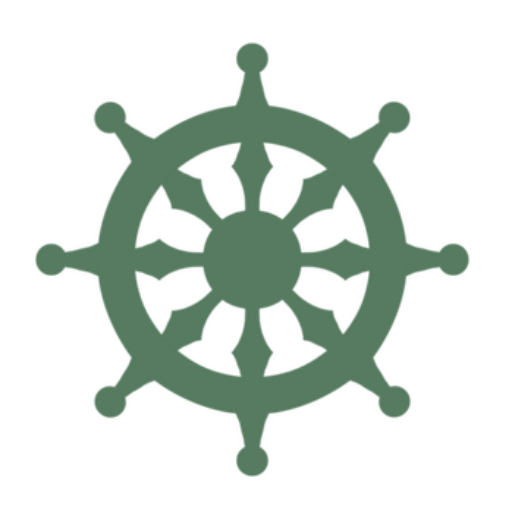Addiction Treatment Centres in Canada
Addiction impacts millions of lives across Canada, affecting individuals, families, and communities. Recovery is possible, but it begins with the right support. Whether addressing substance misuse or behavioral addictions, finding the right treatment center can be life-changing. Understanding the treatment options available in Canada helps individuals and families make informed decisions. This blog explores what addiction treatment centres in Canada offer, the benefits of different treatment methods, and how they guide people on the path to recovery. We’ll also cover aftercare programs, community support, and relapse prevention tools that help maintain progress after treatment. By the end, you’ll have a clear understanding of your options, the steps to seek help, and practical insights to start your journey toward healing. With the right resources and support, recovery can lead to a brighter, more hopeful future.
The Importance of Finding the Right Addiction Treatment Centres in Canada
Not all addictions are the same, and neither are the solutions. Treatment must be tailored to an individual’s specific needs, considering the substance involved, co-occurring mental health conditions, and personal circumstances like family support or employment. Addiction treatment centres in Canada, like Twelve Mile Recovery, excel in delivering holistic, evidence-based approaches. They focus not only on physical recovery but also on emotional, mental, and spiritual healing.
What Makes Canadian Centers Stand Out?
- Holistic Focus on Healing: Emphasizing a well-rounded approach that includes mindfulness to calm the mind, yoga to enhance flexibility and balance, nutrition to fuel the body with essential nutrients, and even martial arts to build strength, discipline, and confidence.
- Person-Centered Care: Programs designed to focus on the unique needs of each individual, offering tailored support for both short-term recovery goals and long-term well-being.
- Worldwide Access through Virtual Options: 3. Remote programs ensure that help is just a click away, providing users with instant access to support, resources, and guidance whenever they need it, no matter where they are.
Understanding the Types of Addiction Treatments Available in Canada
Navigating the diverse range of treatments available can feel overwhelming, especially when trying to determine what might be most effective for your needs. However, treatment options generally fall into several core categories, including medication, therapy, lifestyle changes, and alternative approaches. Each category offers unique benefits and can often be combined to create a more comprehensive treatment plan tailored to the individual.
Intervention Services
Intervention services are often the crucial first step in the journey toward addiction recovery. These programs involve trained professionals who work closely with family members and friends to address concerns about an individual’s drug or alcohol use. The process typically includes planning and rehearsing the intervention, educating loved ones about addiction, and guiding them on how to effectively communicate their concerns. During the intervention, the individual is confronted in a supportive and non-judgmental way, with the goal of encouraging them to acknowledge their substance use and seek professional treatment. These services aim to break through denial and help the individual take the first step toward a healthier, sober life.
Residential or Inpatient Programs
Inpatient rehabilitation provides immersive, 24/7 care in a safe, supportive environment. It removes individuals from toxic or triggering situations that can hinder recovery. Facilities like Twelve Mile Recovery offer structured programs with personalized schedules, evidence-based therapies, and engaging activities. The focus is on building healthier habits and addressing the root causes of addiction. These programs empower individuals to regain control and achieve lasting recovery.
Features include:-
-
Group therapy sessions provide a supportive, inclusive environment where individuals can share their experiences and gain insights from others facing similar challenges. Participants work together toward personal growth and emotional healing. These sessions foster community, reduce feelings of isolation, and encourage new coping strategies through shared understanding and mutual support.
-
Cognitive Behavioral Therapy (CBT) is a widely used, evidence-based approach that helps individuals identify, understand, and change negative thought patterns and behaviors. By breaking cycles of unhelpful thinking, CBT empowers healthier coping mechanisms and improves emotional well-being. It’s commonly used for anxiety, depression, stress, and sleep issues, focusing on practical strategies for lasting change.
-
Receive personalized nutritional guidance tailored to your needs and lifestyle. Experts provide advice to help you make healthier food choices, understand portion control, and integrate balanced meals into your routine. Ongoing support ensures sustainable, long-term success for both your health and overall wellness.
Virtual Treatment Programs
Virtual options are transforming the recovery process by offering therapy and support through digital platforms. These programs suit anyone unable to attend in-person sessions due to distance, busy schedules, or privacy needs. With video counseling, online support groups, and mobile apps, virtual recovery offers flexible, accessible care without disrupting daily life.
Aftercare and Peer Support
Recovery doesn’t end after completing a treatment program—it’s an ongoing journey that requires continued support. Aftercare plans are an essential part of maintaining sobriety, offering resources like ongoing therapy, regular group meetings, and recovery coaching to help individuals stay on track. These tools provide structure, accountability, and a supportive community to navigate the challenges of long-term recovery. Key Benefits of addiction treatment centres in Canada include access to comprehensive aftercare services and a network of professionals dedicated to helping individuals build healthier, substance-free lives.
Life Skills
Life skills are essential in addiction recovery, providing tools to overcome challenges in both recovery and daily life. These include communication, emotional regulation, stress management, decision-making, critical thinking, and building healthy relationships. Research shows these skills are crucial for long-term recovery, helping individuals face life’s challenges without turning to substances. Learning to set goals, manage time, resolve conflicts, and make informed decisions creates a strong foundation for growth and relapse prevention. These abilities foster confidence, self-reliance, and a healthier, more fulfilling life, paving the way for resilience and lasting success in recovery.
Trauma Informed Martial Arts
Trauma-Informed Martial Arts offers a powerful, evidence-based approach to addiction recovery. By blending the discipline of martial arts with trauma-informed care, this innovative method provides individuals with a holistic path to reclaim their lives.
- Integrating body and mind: Participants combine movement with therapeutic principles to release stress, build resilience, and address the underlying trauma often driving addiction.
- Proven impact: This approach empowers individuals to process experiences, foster self-awareness, and rebuild strength, both physically and emotionally.
- A solution for diverse communities: As the demand for effective addiction recovery methods grows, Trauma-Informed Martial Arts stands out as a transformative practice that delivers real results.
This is more than recovery—it’s renewal, resilience, and a stronger future.

Family Integration
Family is often described as the backbone of recovery, providing crucial emotional support and stability during challenging times. Recognizing this, Canadian addiction centers place a strong emphasis on family therapy as a key component of the healing process. These therapy sessions aim to rebuild trust, improve communication, and address underlying issues that may have contributed to addiction. By involving loved ones in the journey, individuals struggling with addiction can find a stronger foundation for long-term recovery and create healthier, more supportive relationships.
Professional Expertise
With master’s-level therapists and professionals who bring both expertise and personal experience from their own recovery journeys, Canadian rehab facilities offer a unique blend of compassion and credibility. These centers are dedicated to providing personalized care, evidence-based treatments, and a supportive environment that fosters long-term healing and growth.
Evidence-Based Care Coupled with Innovation
Many centers combine traditional treatments, such as therapy and medication, with innovative approaches to provide holistic care. These innovative approaches include trauma-informed martial arts to build confidence and release stress, and sound healing to promote relaxation and emotional balance. Choosing a center that blends evidence-based and creative therapies can be essential for effective treatment and lasting recovery. Steps to Take When Seeking Treatment
Step 1. Assess Your Needs
What substances or behaviors are causing concern and require attention? Are you struggling with alcohol, drugs, or perhaps compulsive behaviors that are impacting your daily life? Do you need medical support to safely manage withdrawal, or are you looking for a program that focuses on underlying issues like depression, anxiety, or trauma? Answering these questions can clarify your needs and guide you to the right treatment options.
Step 2. Research Available Programs
Consider factors like location, treatment duration, level of care, and specialized offerings when choosing a recovery program. It’s important to evaluate what aligns best with your specific needs, whether that’s proximity to home, flexible scheduling, or access to unique therapies. Local resources like the “Twelve Mile Recovery Virtual Treatment Program” provide a convenient and supportive option, offering professional care from the comfort of your own home. Taking the time to assess these elements can make a significant difference in finding the right path to recovery.
Step 3. Contact Centers Directly
Have questions about facilities, programs, financing, or the enrollment process? Don’t hesitate to reach out directly. Our dedicated professionals handle inquiries every day and are here to provide clear, detailed information tailored to your needs. Whether you’re curious about specific program offerings, need guidance on financial options, or want a step-by-step breakdown of the enrollment process, we’re ready to help make everything as straightforward as possible.
Step 4. Secure Financing Options
Recovery is priceless, but it often comes with financial challenges. Many treatment centers, including Twelve Mile Recovery, understand this and strive to make care accessible by offering flexible financing options through trusted partners like Medicard Canada. These options help reduce the financial burden, allowing individuals to focus on their journey to healing. Countless success stories showcase the life-changing power of treatment, highlighting the importance of taking that first step toward recovery.
Leah Marie Radoman’s Experience
“Jo & Chris are two of the most incredible people I’ve met! Their passion, determination, and personalized approach made a huge impact on my and countless others’ journeys.”
Clients Seeing Results
Statistics show that up to 80% of clients who complete structured addiction treatment report measurable improvements in well-being, self-discipline, and emotional regulation. These programs often provide a combination of therapy, support groups, and personalized care plans, helping individuals build the tools they need to maintain long-term recovery and improve their overall quality of life.
Conclusion
Recovery isn’t a straight path and comes with ups and downs, but every choice to seek help brings you closer to regaining control and building a better future. Addiction treatment centers across Canada provide the care, resources, and support needed to transform lives. They offer programs tailored to individual needs, including therapy, counseling, and aftercare to support lasting recovery. If you’re ready to take the first step, explore the personalized programs at Twelve Mile Recovery by calling 1 (289) 273-3049 or clicking Twelve Mile Recovery. Your path to hope, healing, and empowerment begins with one call. You don’t have to do it alone—help is here.



